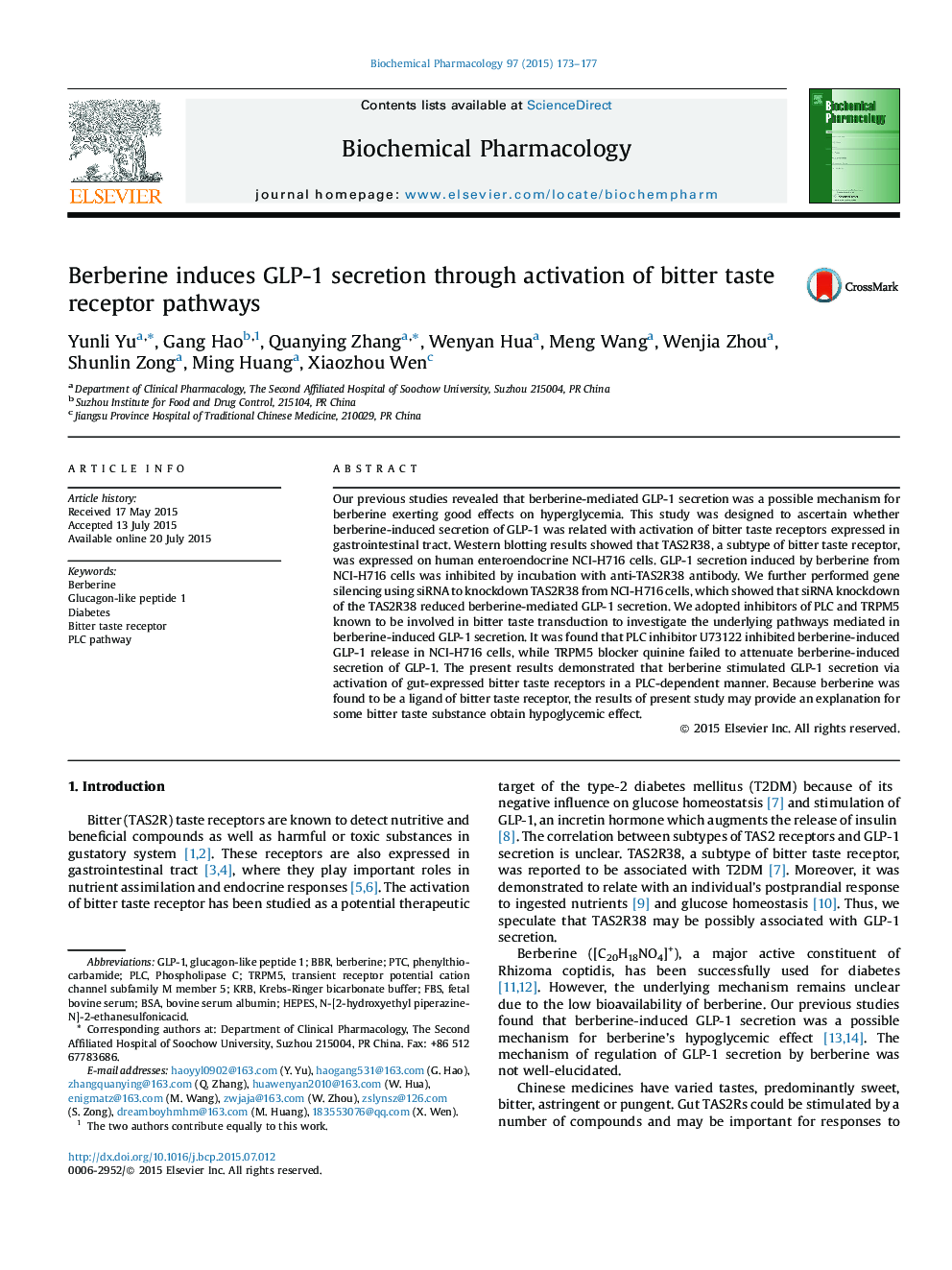| Article ID | Journal | Published Year | Pages | File Type |
|---|---|---|---|---|
| 2511975 | Biochemical Pharmacology | 2015 | 5 Pages |
Our previous studies revealed that berberine-mediated GLP-1 secretion was a possible mechanism for berberine exerting good effects on hyperglycemia. This study was designed to ascertain whether berberine-induced secretion of GLP-1 was related with activation of bitter taste receptors expressed in gastrointestinal tract. Western blotting results showed that TAS2R38, a subtype of bitter taste receptor, was expressed on human enteroendocrine NCI-H716 cells. GLP-1 secretion induced by berberine from NCI-H716 cells was inhibited by incubation with anti-TAS2R38 antibody. We further performed gene silencing using siRNA to knockdown TAS2R38 from NCI-H716 cells, which showed that siRNA knockdown of the TAS2R38 reduced berberine-mediated GLP-1 secretion. We adopted inhibitors of PLC and TRPM5 known to be involved in bitter taste transduction to investigate the underlying pathways mediated in berberine-induced GLP-1 secretion. It was found that PLC inhibitor U73122 inhibited berberine-induced GLP-1 release in NCI-H716 cells, while TRPM5 blocker quinine failed to attenuate berberine-induced secretion of GLP-1. The present results demonstrated that berberine stimulated GLP-1 secretion via activation of gut-expressed bitter taste receptors in a PLC-dependent manner. Because berberine was found to be a ligand of bitter taste receptor, the results of present study may provide an explanation for some bitter taste substance obtain hypoglycemic effect.
Graphical abstractFigure optionsDownload full-size imageDownload as PowerPoint slide
